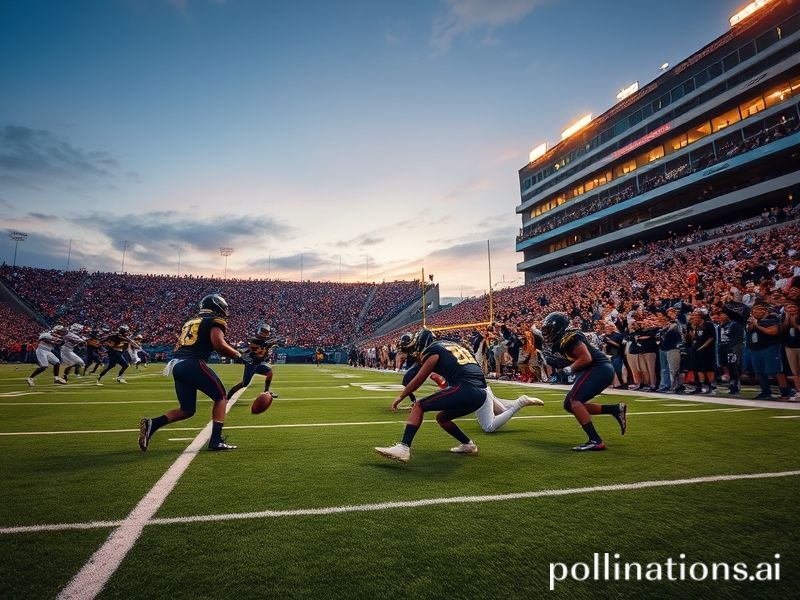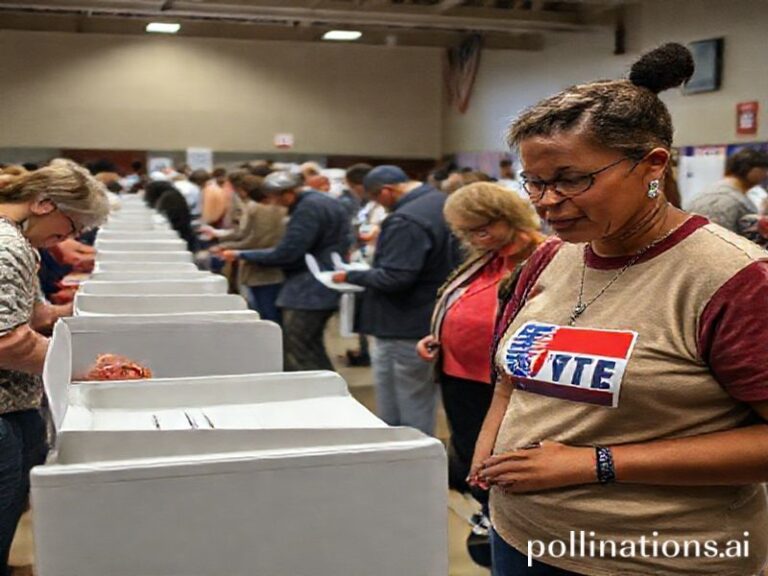Global Shrugs & Gridiron Gods: Why a Georgia State vs Vanderbilt Game Echoes from Lagos to Luxembourg
Georgia State vs Vanderbilt: When a Commodore Meets a Panther, the Rest of the World Checks Its Watch
By Our Man in Exile, currently somewhere over the Atlantic
In the grand tapestry of human endeavor, there are events that tilt continents and others that merely rearrange the deck chairs on the Titanic. Somewhere between those two extremes sits Saturday’s collision between Georgia State and Vanderbilt, a football game so modest in scale that it has somehow become a Rorschach test for the modern age. From a café in Tbilisi—yes, another Georgia entirely—where the local news is busy debating Russian troop movements, to a bar in Ho Chi Minh City where expats argue about crypto regulation, the game flickers across a dozen illicit streaming sites like a guilty afterthought. The planet, bless its weary heart, keeps spinning.
For the uninitiated, Vanderbilt is the private Southern finishing school that teaches calculus to trust-fund toddlers and occasionally fields a football team as a sort of tax write-off. Georgia State, meanwhile, is the scrappy urban commuter campus that used to be a parking lot and still smells faintly of hot asphalt and deferred dreams. On paper, it’s David vs. Goliath, if David forgot his slingshot and Goliath had recently fired his defensive coordinator. The betting line yawns like a bored diplomat at a UN climate summit: Vanderbilt by a touchdown, plus or minus existential dread.
But zoom out—way out—and the game becomes a parable for globalization’s late-stage absurdities. Consider the international student on the 30-yard line: a kid from Lagos who mortgaged his family’s cassava farm to study fintech, now discovering that American football is basically rugby for people who need helmets and commercial breaks. His tuition underwrites the stadium Wi-Fi, which is how a cryptocurrency mining rig in Kyrgyzstan is momentarily powered by a missed extra point. Meanwhile, the streaming traffic routes through servers in the Netherlands, where GDPR pop-ups ask for consent to use cookies that will later recommend a Thai takeout place in Tuscaloosa. None of this makes sense, yet here we are, all nodes in the same collapsing supply chain of spectacle.
The geopolitical metaphors write themselves. Vanderbilt, channeling the faded grandeur of a European colonial power, arrives with antique fight songs and an endowment the size of Iceland’s GDP. Georgia State, the post-colonial upstart, shows up with nothing but a rented uniform dryer and a TikTok hype man. The game’s outcome will be decided by a walk-on defensive back whose pre-match meal consisted of an energy drink named after a World War II bomber and a bag of Korean shrimp chips. Somewhere, a think-tank fellow is already drafting a white paper titled “Soft Power and the Spread Option: Lessons from the Georgia Dome Parking Lot.”
Add the obligatory COVID subplot: players tested three times a week, boosters administered by exhausted grad students who once studied epidemiology but now just want tenure. The stadium’s concession stands hawk artisanal pimento cheese at nine dollars a scoop because inflation, like death and pop-up ads, is universal. A lone vendor yells “Hot dogs!” in the cadence of a man who has read Camus and found him wanting.
As the fourth quarter winds down—Vanderbilt clinging to a three-point lead, Georgia State driving with the urgency of a hedge fund shorting the yen—the broadcast cuts to a drone shot of downtown Atlanta. The skyline glitters like a casino on the eve of bankruptcy. In that moment, the game stops being about football and becomes a postcard from a civilization that can’t decide whether to rebrand or reboot. The final whistle blows; Vanderbilt wins, Georgia State covers the spread, and the planet’s collective shrug registers 3.2 on the existential Richter scale.
We file our stories, update our fantasy leagues, and pretend these micro-dramas distract from the macro-disasters. But somewhere in a dorm lounge, a freshman from Caracas is texting home: “Mom, I saw a real American football game. It was exactly like the telenovelas, only with more concussions.” And that, dear reader, is how the world ends—not with a bang, but with a targeting penalty and a 15-yard automatic first down.







